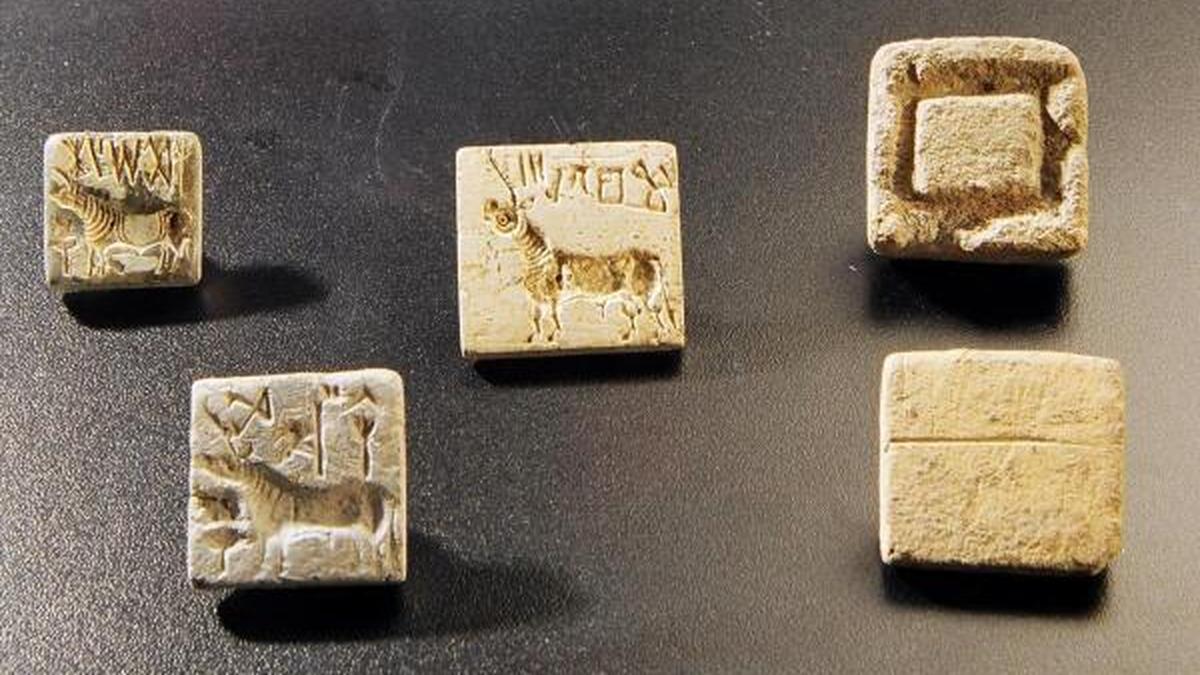When Harappans Had Unicorns: 100 Years of Indus Valley Discovery
History Indian HistoryPosted by NewAdmin on 2025-02-13 08:41:15 |
Share: Facebook | Twitter | Whatsapp | Linkedin Visits: 42

A Century of Harappan Discovery
On September 20, 1924, the world first learned about the Indus Valley Civilization, also known as the Harappan Civilization, thanks to a pivotal article by John Marshall, the then Director-General of the Archaeological Survey of India. His article, published in The Illustrated London News, revealed the discovery of two remarkable seals—one found in Harappa and the other in Mohenjo-daro, over 500 kilometers apart. These seals featured a mysterious one-horned creature, later dubbed the "unicorn," sparking fascination and further research into the civilization's complexities.
The Link to Sumer and Renaming the Civilization
Initially, these finds were considered Indus-Sumerian, suggesting a link between the Indus Valley and the ancient Sumerian civilization. However, it was soon recognized that the Indus Valley Civilization had developed independently. In a "Letter to the Editor" published a week later, Professor A.H. Sayce identified the seals as similar to those he had found in Sumer, dating them to around 2300 BC. This recognition eventually led to the rebranding of the civilization as Indus, but further discoveries expanded its boundaries, with settlements found in Afghanistan, along the Ghaggar-Hakra riverbed, and the Gujarat coast.
Expansion of the Harappan Civilization
As excavations continued, it became clear that the Indus Valley Civilization was much larger than initially thought. Archaeological sites beyond Harappa revealed a highly developed culture with advanced urban planning, trade systems, and unique symbols. The civilization now bears the name of its first discovered city, Harappa, but its influence spanned far wider, covering vast areas across modern-day Pakistan, India, and parts of Afghanistan.
Legacy and the Unicorn Symbol
The iconic unicorn seal continues to captivate scholars and enthusiasts alike, symbolizing the mystery and allure of the Harappan Civilization. This 100-year milestone highlights the enduring intrigue of the civilization’s complex society, advanced technology, and possible links between merchants and religious practices, forever changing our understanding of ancient history.
Search
Categories
Recent News
- Pune Hit-and-Run Leaves BJP Spokesperson's Mother Critically Injured
- Ajit Pawar's Final Words: NCP Releases Emotional Audio
- Amit Shah's Final Push: Tackling Naxalism in Chhattisgarh
- CCTV Captures Shocking Drink Spiking Incident at London Nightclub
- Justice for Epstein Victims: Securing Privacy After Redaction Failures
- Unlocking the Secrets of India's Currency Notes
- Cortina's Village: A Winter Sports Haven
- Domestic Violence in Karnataka: A Shocking Act of Jealousy